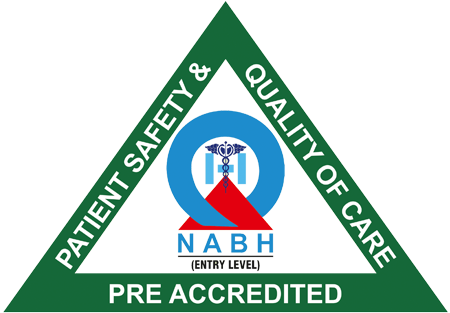Pregnancy is an incredible and life-changing experience, often divided into three distinct stages called trimesters. Each trimester marks important milestones in your baby’s growth and your body’s changes as it prepares for childbirth. Understanding these stages helps you better care for yourself and your baby along the way.
This guide is here to walk you through each trimester, covering what to expect, how your baby is developing, common symptoms, tips for care, and some of the tests you might encounter. We’ll also address some frequently asked questions about pregnancy, so you feel informed every step of the way.
Looking for top-quality healthcare? Visit the best hospitals in East Marredpally for expert medical care and personalized treatment. Book an appointment today!
First Trimester (Weeks 1-12) – The Foundation Stage
What Happens in the First Trimester?
The first trimester is where it all begins! It starts with conception when the sperm fertilizes the egg, forming a zygote. Over the next few weeks, this tiny clump of cells will grow into an embryo and eventually a fetus. Around week 4, the neural tube (which later forms the brain and spinal cord) begins to develop, along with the heart and major organs like the lungs and liver. By the end of the trimester, your baby is about the size of a lime, with all major body systems formed.
Common Symptoms in the First Trimester
Your body goes through major hormonal changes during these first few weeks, which can cause noticeable symptoms, including:
- Morning sickness (nausea that isn’t limited to the morning!)
- Fatigue and low energy
- Breast tenderness or swelling
- Mood swings or heightened emotions
While these are all normal, it’s important to contact your doctor if you experience heavy bleeding, severe dizziness, or extreme abdominal pain.
Essential Care Tips for the First Trimester
- Take prenatal vitamins that include folic acid, iron, and DHA. These support your baby’s development and reduce risks of neural tube defects.
- Focus on a balanced diet with lots of fruits, veggies, lean protein, and whole grains. Hydration is key too!
- Avoid alcohol, smoking, certain fish high in mercury, and excessive amounts of caffeine (stick to one cup of coffee daily or less).
- Try pregnancy-safe exercises like light walking or prenatal yoga to stay active.
First Trimester Screening & Tests
Early prenatal care is crucial. Your doctor will likely recommend:
- An initial blood test to check for hormones, iron levels, and infections.
- A first ultrasound (usually between weeks 6-8) to confirm the pregnancy and check the heartbeat.
- Optional genetic screens to check for chromosomal abnormalities like Down syndrome.
Second Trimester (Weeks 13-26) – The Growth Phase
What Happens in the Second Trimester?
This is when you’ll probably start to “show,” as your baby grows rapidly. By now, their organs are functioning, their facial features are forming, and they’ll even be able to hear sounds! Around weeks 18-20, you might feel those exciting first flutters of movement called “quickening.”
Common Symptoms in the Second Trimester
Good news! For many, nausea and fatigue ease up during the second trimester. However, some new symptoms may arise, like:
- Weight gain and visible changes to your belly.
- Back pain and occasional heartburn.
- Swelling in your hands and feet (keep an eye on sudden swelling, as it can signal a problem).
- Braxton Hicks contractions might start as your body practices for labor.
Essential Care Tips for the Second Trimester
This is the perfect time to focus on maintaining energy and supporting your baby’s growth:
- Boost your intake of calcium (for bone development) and omega-3 fatty acids (crucial for brain development).
- Stick to light exercises, like swimming or walking, to improve circulation and reduce swelling.
- If back pain bothers you or sleeping becomes tough, try using a pregnancy pillow for support.
Second Trimester Screening & Tests
Between weeks 18-22, your doctor will perform the anatomy scan (a detailed ultrasound) to check how your baby is developing. Other common tests include:
- The glucose tolerance test to screen for gestational diabetes.
- Blood tests to check your Rh factor and iron levels.
Third Trimester (Weeks 27-40) – The Final Preparation
What Happens in the Third Trimester?
Your baby is almost ready to meet you! Their brain is developing at an astonishing rate, they’re gaining weight rapidly, and by weeks 36-37, they’ll likely settle into a head-down position in preparation for birth. At this point, they’re putting on the final touches, like fat for warmth and lung maturity, to thrive outside the womb.
Common Symptoms in the Third Trimester
Things can get a little uncomfortable as your due date approaches. Common symptoms include:
- Shortness of breath as your growing uterus puts pressure on your diaphragm.
- Frequent urination since your bladder has less room.
- Braxton Hicks contractions (which are usually mild and irregular).
- Pelvic pressure and difficulty sleeping.
While normal, sudden or severe issues like sharp pains or heavy bleeding should immediately be brought to your doctor’s attention.
Essential Care Tips for the Third Trimester
- Get ready! Create a hospital bag with essentials like clothing, toiletries, snacks, and baby supplies.
- Consider trying prenatal yoga or breathing exercises to reduce stress and help with labor prep.
- Work with your doctor to create a birth plan that aligns with your preferences while prioritizing safety.
Third Trimester Screening & Tests
Your doctor will monitor both you and your baby closely during this stage. Common tests include:
- Non-stress tests and biophysical profiles to check your baby’s heartbeat and movements.
- The Group B Strep test (usually done around week 36) to decide whether you’ll need antibiotics during labor.
Ensure a safe and comfortable pregnancy at the leading maternity care center in Secunderabad. Get expert care for you and your baby—Consult now!
FAQs About Pregnancy Trimesters
1. Why is pregnancy divided into trimesters?
Dividing pregnancy into trimesters helps group key developmental milestones and physical changes into manageable chunks. It gives both you and your doctor a timeline to monitor health and development.
2. What are the most critical weeks of pregnancy?
The first 12 weeks are especially crucial because the baby’s brain, spine, heart, and organs are forming. Taking prenatal vitamins and avoiding harmful substances during this phase is vital.
3. When does the baby start kicking?
Most expectant moms first feel baby movements around weeks 18-22 during the second trimester.
4. What trimester is the hardest?
Every pregnancy is different, but the first trimester can be tough due to hormonal changes and nausea, while the third trimester brings physical discomfort as your body prepares for labor.
5. How can I ensure a healthy pregnancy in each trimester?
Stay consistent with prenatal care, eat a balanced diet, get some light exercise, and avoid harmful habits. Your doctor will guide you on the best choices for your unique situation.
Conclusion
Pregnancy is a remarkable experience, filled with milestones for both you and your baby. Each trimester comes with its own challenges and joys, but with proper care, you can nurture a healthy pregnancy. Don’t hesitate to lean on your healthcare providers for guidance and support. Take it one trimester at a time, and before you know it, you’ll be holding your little one.
Experience world-class healthcare at Shenoy Hospitals—trusted for excellence in patient care and advanced medical treatments. Schedule your visit now!
Share:



